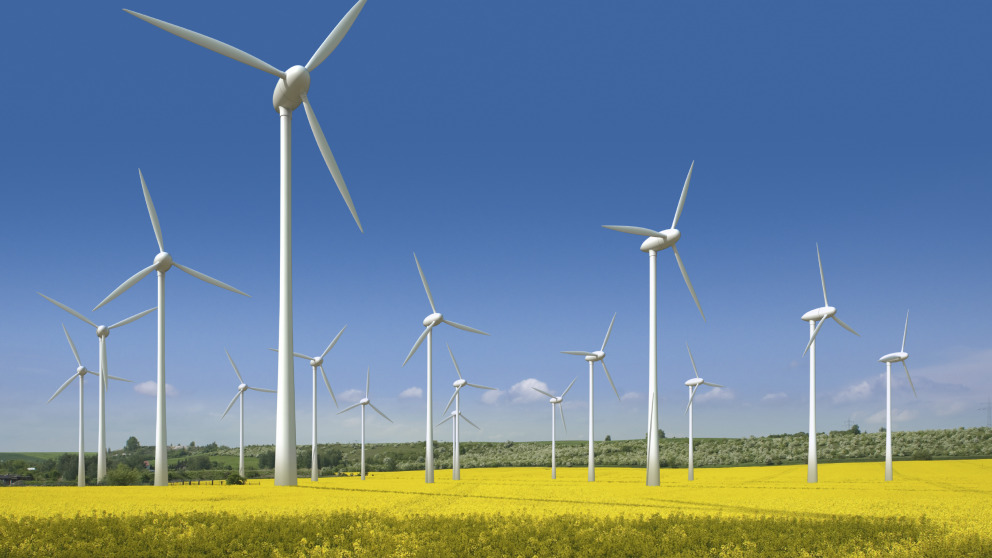Headline:
Broad Public Support for Climate Protection and Renewables in Europe
Comparative Study

A clear majority of citizens is in favour of renewables, most agree that “climate change is already with us”, and public confidence in political actors is highest in Germany – these are the main findings of a survey of citizens on energy and climate policy in Germany, France, the UK, and Norway.
Around a thousand people from each of the four countries participated in the survey on climate change and energy policy, which was conducted in June last year. Carried out and evaluated by Cardiff University (UK), the Stuttgart Research Center for Interdisciplinary Risk and Innovation Studies at the University of Stuttgart (ZIRIUS), the Symlog Institute (France) and the University of Bergen (Norway), the study on “European Perceptions of Climate Change and Energy Preferences” (EPCC) was unveiled at a joint press conference by ZIRIUS, the IASS, and online platform “klimafakten.de” in Berlin on 8 March.
With a presidential election looming in France and parliamentary elections set to take place in Norway and Germany later this year, the survey’s findings are politically significant. Meanwhile in the UK, Brexit is also fuelling uncertainty with regard to future climate and energy policy.
The findings: people are convinced that climate change exists, but doubt scientific consensus
The vast majority of Germans (83 per cent) believe that climate change is a fact. Yet the proportion of climate change sceptics in Germany is surprisingly high by comparison with the other surveyed countries: at 16 per cent, it is considerably higher than in the UK (12 per cent), France (6 per cent) and Norway (4 per cent).
One reason for this could lie in the fact that three out of every four Germans think that climate change is a contentious issue in the scientific community. The respondents were asked for their view on the extent to which climate scientists agree on anthropogenic climate change. Only a quarter (24 per cent) of those surveyed were of the opinion that the vast majority of climate researchers believe that human-made climate change exists. In fact, over 97 per cent of climate researchers agree on this, as revealed by several studies.
“That’s an alarming sign”, said Ortwin Renn, the study’s project leader at the ZIRIUS Research Center at the University of Stuttgart and a scientific director at the IASS in Potsdam. “At a time when right-wing populist movements are gaining ground, researchers need to communicate their findings more widely and explain them in a more understandable way.” Carel Mohn, head of online platform klimafakten.de, believes that climate researchers must do more to actively engage with citizens.
But the climate itself appears to be swaying public opinion: roughly 60 per cent of respondents in each of the four countries reported that the impacts of climate change are already evident.
Energy policy: high approval levels for renewables, opposition to coal and nuclear power
The survey also asked respondents about their opinions on various sources of energy, the confidence they have in different institutions, and the kind of state energy policy they would like. Renewables enjoy high approval rates in all four countries. More than 70 per cent of citizens have a positive opinion of solar energy and wind and hydroelectric power. By contrast, oil, coal and nuclear power have low approval rates in Germany, where they are favoured by only 28 per cent, 22 per cent and 14 per cent of citizens respectively. “At present, nuclear energy as a CO2-neutral form of energy production is not a realistic alternative to fossil fuels for political reasons, especially in Germany,” commented Annika Arnold, research associate at the ZIRIUS Research Institute of the University of Stuttgart.
No to higher prices and taxes
When it comes to their energy policy expectations, citizens also have clear preferences. They come out clearly in favour of a ban on energy-wasting household appliances – in Germany such a ban is supported by 61 per cent of respondents and opposed by just 18 per cent.
However, on the question of imposing higher taxes on fossil energy carriers like coal, oil and gas, naysayers are in the majority: 53 per cent of Germans are against this option. And an increase in the price of electricity is also opposed by two thirds of Germans (67 per cent).
Confidence in local government as an energy transition actor is highest in Germany
When it comes to the level of public confidence in important energy policy actors, there are significant differences between Germany and the other three countries. Germans have far more confidence in the architects of energy policy than the citizens of France, the UK, and Norway: the EU Commission, the government, local government and energy companies all enjoy a far greater level of trust in Germany than in France, the UK or Norway. And the absolute frontrunners in terms of public trust are German towns, cities and municipalities: only 5 per cent of Germans have “absolutely no confidence” in municipalities with regard to energy policy.
The study was funded by the Federal Ministry of Education and Research as part of the EU programme initiative “Connecting Climate Knowledge for Europe” (JPI Climate).
